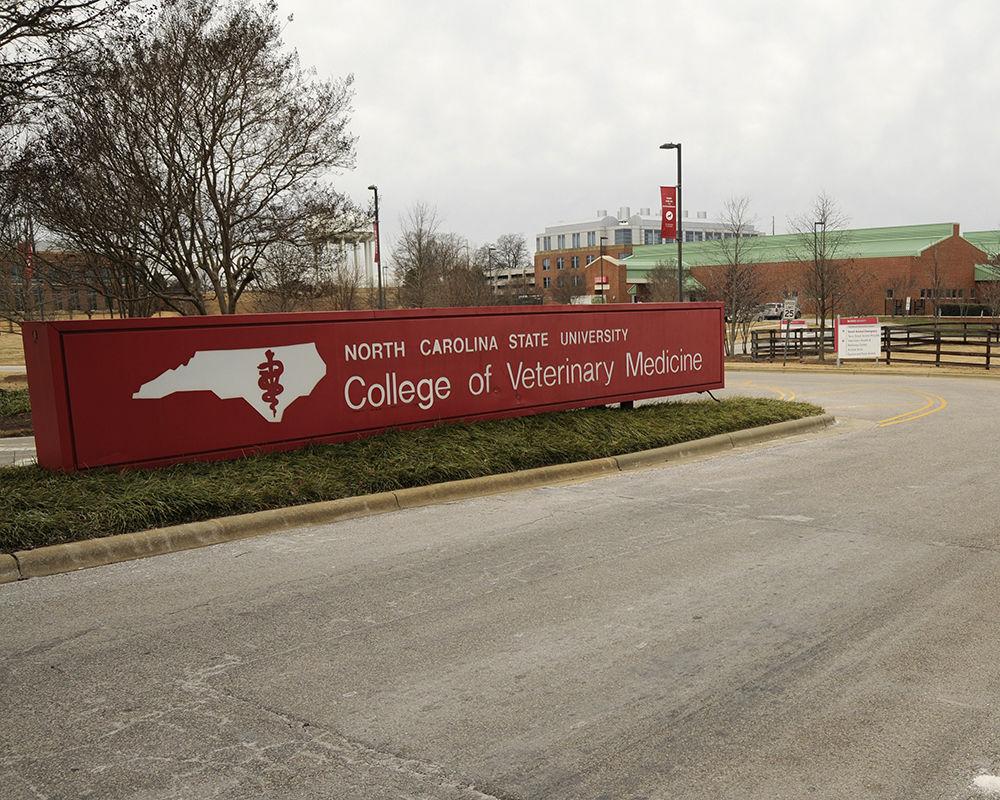In 1968, the New England Journal of Medicine described translational research as a “bench-to-bedside interface” with an emphasis on scientific communication and collaboration. As its name suggests, this interface advocates for the translation of laboratory findings into a format appropriate for clinical practice.
In health care, the use of animal models as substitutes for human patients can aid in the development of translational medicine. At NC State, the Translational Research in Pain (TRiP) Program evaluates pain conditions in companion animals as models for chronic pain signatures in humans.
One particular study assesses the effects of naturally occurring osteoarthritis and osteosarcoma in pet dogs. Emily Haupt, a third-year studying animal science, assesses trial participants with the program in a novel approach to translational medicine and pharmaceutical development.
“When a pet comes to us, they usually have some kind of activity impairment — maybe osteoarthritis pain in one or two joints,” Haupt said. “To qualify for our study, they must have moderate to severe limb lameness. We will then need to conclude if our observations can be backed up clinically.”
After the initial bedside assessment has been completed, Haupt and her colleagues initiate a testing regime to determine the scale of lameness.
“I do a lot of hands-on research, including physical, neurological and orthopedic exams,” Haupt said. “Sometimes I will also take radiographs, draw blood or do joint injections for our patients.”
According to Haupt, these exams include extensive observation of the dogs’ movements.
“We’re looking at pain in the dog’s limb, so we do a lot of dog walking across a force plate on a pressure mat,” Haupt said. “They won’t want to put weight on that limb, so we should see that correlate on the pressure mat results.”
She equates the lab’s measurement tools to a “dog Fitbit.”
“We use several different parameters to gauge mobility,” Haupt said. “We might simulate stairs to see how well they can maneuver going up and down.”
Regarding translational medicine, the TRiP Program studies the impact of a pain relieving drug on their patients over a multi-month trial period.
“If they do qualify for the study, then they are given either a low dose or a high dose, or a placebo of the drug,” Haupt said. “It’s a double-blind study, so even we, as the researchers, don’t know who has what.”
However, Haupt does not limit her time to just data collection. She considers her position to be about 50% online and 50% hands-on.
“I also spend time at the computer doing data analysis,” Haupt said. “I help to set up the dog’s activity monitors. We will film the dogs’ activities, so that we can visualize what exactly the data means.”
Haupt has enhanced her laboratory experience through immersion in companion animal studies.
“As an animal science major, my research strongly correlates with my coursework on the anatomy and physiology of domesticated animals,” Haupt said. “Ideally, in the future, I would like to be a general practitioner veterinarian with a focus on companion animal health.”
Haupt arrived at NC State with a penchant for research. In high school, she interned with an NC State-sponsored research project that inspected living conditions of larval blue crabs in an estuarine environment. As a first-year, Haupt approached her instructors about potential research opportunities for students interested in veterinary medicine.
“I always knew that I wanted to be involved in research. More so after the blue crab project — that really sparked my interest,” Haupt said. “I would jot down the names of faculty and labs that I thought were interesting, but I didn’t actually contact anyone until my sophomore year.”
Her sophomore year, Haupt faced the daunting task of applying for employment during the COVID-19 pandemic. However, she credits the staff at NC State with encouraging her to continue the search.
“I got a lot of rejections — a lot of ‘nos,’ but I didn’t let that stop me,” Haupt said. “I ended up talking to Kyle Miskell at the College of Vet Medicine. He has helped me to meet more faculty and to deduce who has space in their labs for undergraduate students.”
According to Haupt, her experience has been smooth sailing since. She plans to attend veterinary school after graduating from NC State and to continue her work in translational research.














